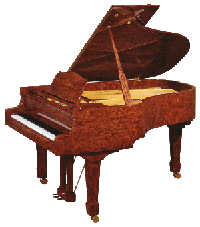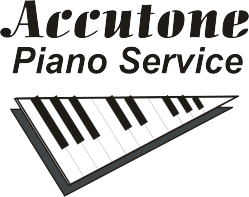Intro: Voicing the piano is the procedure piano technicians use to alter the "voice" of the piano. Just as different people have different voices, pianos also have their own particular sound. A piano may have a bright sound or a mellow sound, depending upon the design.
Correcting Tone: If your piano sounds too bright and harsh sounding, it will be hard to play soft passages in the music. Or, if the piano seems dull and lifeless, bringing up the tone is necessary to play louder and more expressively. Depending upon where the piano needs to be, different techniques are used to soften or harden the hammers to adjust the overall tone.
Uneven Tone: If some areas of the piano are too bright or too dull, or if there are unwanted resonances or noise from the piano, there are techniques which address these problems. The same procedures of softening or hardening the hammers is used to correct uneven tone.
String Noises: Careful tuning will sometimes reveal unwanted sounds coming from the strings or other parts of the piano. Addressing these noises is also part of voicing.
Conclusion: If you feel that your piano could sound better, some voicing would probably take care of it. Be aware, though, that there are limits to how much can be done. You won't be able to transform that Yamaha into a Steinway for example. But, you can really make a big difference in the sound by having it voiced.





